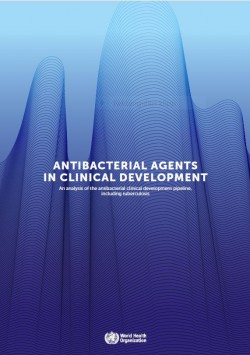The WHO review shows that the current clinical pipeline is still insufficient to mitigate the threat of antimicrobial resistance.
JPIAMR contributes to finding solutions to the challenges presented by WHO. JPIAMR is processing current and future calls that funds research on the very challenges highlighted in the report. Among with several ground breaking activities.
WHO points out:
- More investments needed in basic science, drug discovery and clinical development.
- Most of the agents in the pipeline are modifications of existing antibiotic classes. They are only short term solutions as they usually cannot overcome multiple existing resistance mechanisms and do not control the growing number of pan-resistant pathogens.
- More innovative products are required against pathogens with no cross- or co-resistance to existing classes.
- Although oral formulations for community diseases associated with high morbidity are essential globally, few oral antibiotics for infections caused by Gram-negative pathogens are in the pipeline.
As of May 2017, a total of 51 antibiotics (including combinations) and 11 biologicals were in the clinical pipeline with 42 new therapeutic entities (33 antibiotics and nine biologicals) that target priority pathogens, seven products for tuberculosis (TB) and nine for C.difficile infections (seven antibiotics and two biologicals) . The qualitative analysis shows a lack of potential treatment options for priority resistant bacteria, especially for multidrug- and extensively drug-resistant Gram-negative pathogens.
The full report is now available, please click here to view it.

